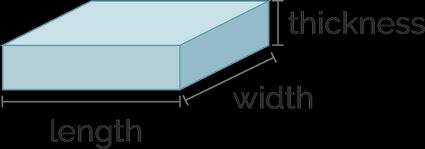Metal Weight Calculator
This metal weight calculator is a tool that will help you find the weight of any amount of metal, useful if you are, e.g., planning to transport large metal elements. This will allow you to accurately estimate the cost of driving the elements to your desired destination or if your vehicle can support the weight!
Our material weight calculator has a vast number of options to choose from, both in terms of shapes and alloys; you can use it to calculate the weight of common metals like steel or aluminum, but also for less popular materials, such as manganese or beryllium.
🙋 If you want to learn, specifically something about steel and aluminum, we have our separate steel weight calculator and our aluminum weight calculator that you can check out. We also have a gold weight calculator if gold interests you.
Read on to find out more about calculating metal weight, learn how to do the calculations yourself, and check out the metal weight chart for detailed information about different alloys used in construction.
How to use the metal weight calculator?
Using this material weight calculator is quite easy. Please follow this short set of instructions on how to get your answer!
-
Start by picking the alloy you want to calculate the weight of. We have put "steel" as the default option as it's one of the most commonly used metals, but you have quite a long list to choose from. Click the button, and you will see a drop-down menu of various metals and alloys organized in alphabetical order. The alloys have different densities, so picking the right one is crucial for the correct answer. You can click on the
Display this material's densitycheckbox to ensure you're choosing the correct alloy. You can also select the last dropdown option to enter custom material density if your desired material is not in the list of options. -
Pick the shape of the metal element. You can choose from:
-
Rectangular prism — note that this includes elements that have a square as its base, as well as very thin sheets of metal. In the latter's case, remember to switch the unit of thickness to millimeters or thousandths of an inch!
-
Circular prism;
-
Hexagonal prism;
-
Octagonal prism;
-
Ring-based prism;
-
Wire;
-
Tube;
-
Sphere;
-
Ring;
-
Can; and
-
Other — we have included the most common shapes in our metal weight calculator, but if you cannot find the one you're looking for, pick this option. In this case, we will ask you to provide the volume of the metal element. You might want to check out our 3D geometry calculators and see if we can help you find the value you need!
-
-
Depending on the shape, we will ask you to fill in some additional information that we need to calculate the volume of a single piece. For example, in the case of a rectangular metal sheet, the material weight calculator will need to know the length and the width of the rectangle to calculate its surface area, and, in the case of the circle, it'll ask you for the radius (or you can tick on the
Enter diameter values insteadcheckbox if you want to input diameter values in our tool). In some cases, we will also ask for the thickness of the metal element. -
Provide the material weight calculator with the number of metal elements. We have set up 1 as the default option, just so that you can immediately see the weight of a single metal piece. Feel free to change this number to suit your needs!
After inputting all the data listed above, you will see your result in the bottom-most field of the metal weight calculator.
How to calculate metal weight?
Even though our material weight calculator seems big at first glance, at its core, it operates on a very simple formula. It all comes down to the basic weight equation:
weight = volume × density
In the case of our calculator, you have the additional element of multiplying the weight by the number of elements, so the final equation is:
total weight = volume × density × number of pieces
As you can see, the way this tool works is, in reality, quite simple. The tricky part might come with manually calculating the volume of some of the shapes, and in some cases, the formulas tend to get complicated (when bending sheet metal, for example). But don't worry! You should find everything that you need to calculate volumes in our 3D geometry calculators section.
Metal weight chart
If you're interested in the details behind how our metal weight calculator works, you'll likely find this section useful. Take a look at this metal weight chart to find out the specific densities we use in our equations! For the sake of conciseness, we have decided to present you the shortened version, consisting of the most important and most popular alloys that you can use in our tool.
Note: our material weight calculator is based on density values given in kg/m³, as that's the format most commonly used in the sources related to the subject. If you're interested in changing the values to the imperial system, you can use our density converter.
Alloy | Density in kg/m³ |
|---|---|
Admiralty brass | 8525 |
Aluminum (average) | 2700 |
Babbit | 7270 |
Brass | 8500 |
Cadmium | 8690 |
Chromium | 7150 |
Cobalt | 8860 |
Copper | 8960 |
Gold | 19300 |
Iron | 7870 |
Iron (cast) | 7300 (on average) |
Iron (wrought) | 7740 |
Lead | 11340 |
Nickel | 8900 |
Platinum | 21500 |
Silver | 10500 |
Steel | 7860 |
Steel (stainless) | 7950 |
Metals in construction — which are the most popular?
Some alloys are more common in the construction industry than others. Here's a short list of the most popular ones, along with some of their common uses.
-
Aluminum stands out from other metals due to how lightweight it is. Despite being a strong, durable material, it's one of the lightest metals used in construction! It can also be relatively easily formed or joined, making it the perfect material for metal ornaments. One of aluminum's more common uses is building roofs.
-
Steel is known for its durability, making it the go-to metal for many architects and builders. One of its most important features is the fact that it is easily recyclable, placing it among the more eco-friendly construction materials.
-
Stainless steel has the same merits as regular steel does, but the addition of aesthetic values! We often use it to finish up buildings, adding a sharp and modern look.
-
Titanium, similarly to aluminum, is mostly praised for being lightweight. It's mostly used in heating and cooling systems due to its high resistance to corrosion.
-
Copper is particularly interesting, as it happens to be the oldest known metal still used in construction! It's incredibly versatile, but you are most likely to find it in cladding and electrical wiring.

FAQs
What is metal weight?
Metal weight is the heaviness of that particular metal. We can say that the weight of an object is a measurement of the force acting on the object as a result of gravity. Weight is a property specific to a particular metal. To determine the weight of the specific metal, we can use the formula weight = volume × density.
Why is it important to calculate metal weight?
When choosing a material for the metal project, its weight can be crucial for several reasons:
- Cost: The price of raw materials is set per pound or hundred pounds. The heavier the metal, the more it will cost.
- Mobility: Metal objects need to be lifted regularly, and a lifting machine may have a weight limit.
- Shipping costs: The cost of delivery increases with the weight of the product.
Which is the lightest metal in the world?
The lightest metal is magnesium. Its density is only 1780 kg/m3, around a quarter of steel and two-thirds of aluminum. Thus, magnesium is excellent for lightweight applications in transport (land, air, and sea) and power tools.
How much does 6 m of single aluminium wire weigh?
Assuming that the radius is 0.04 m, the wire weight will be 81 kg. To calculate this:
-
Use a formula: weight = volume × density × number of pieces.
-
Calculate the volume of the wire:
πR2 × L = 3.14 × (0.04m)2 × 5 m = 0.03 m2
-
Use the density of aluminum 2700 kg/m3.
-
Compute metal weight:
weight = volume × density × 1 piece = 0.03 × 2700 = 81 kg
